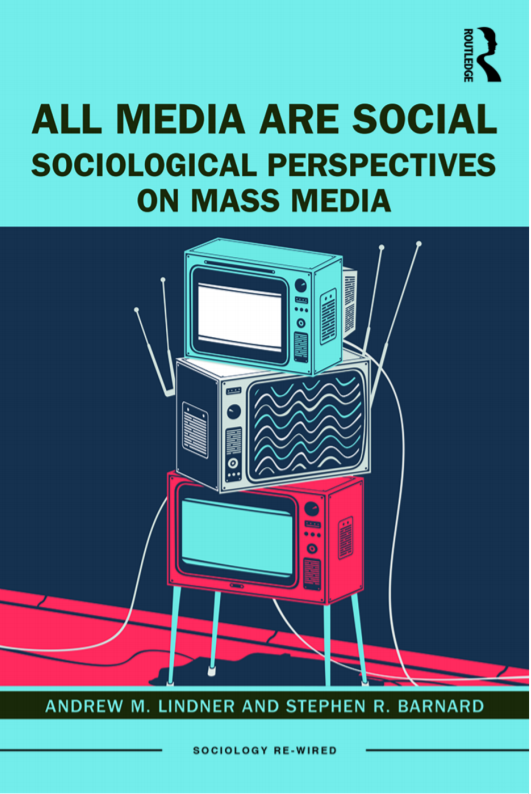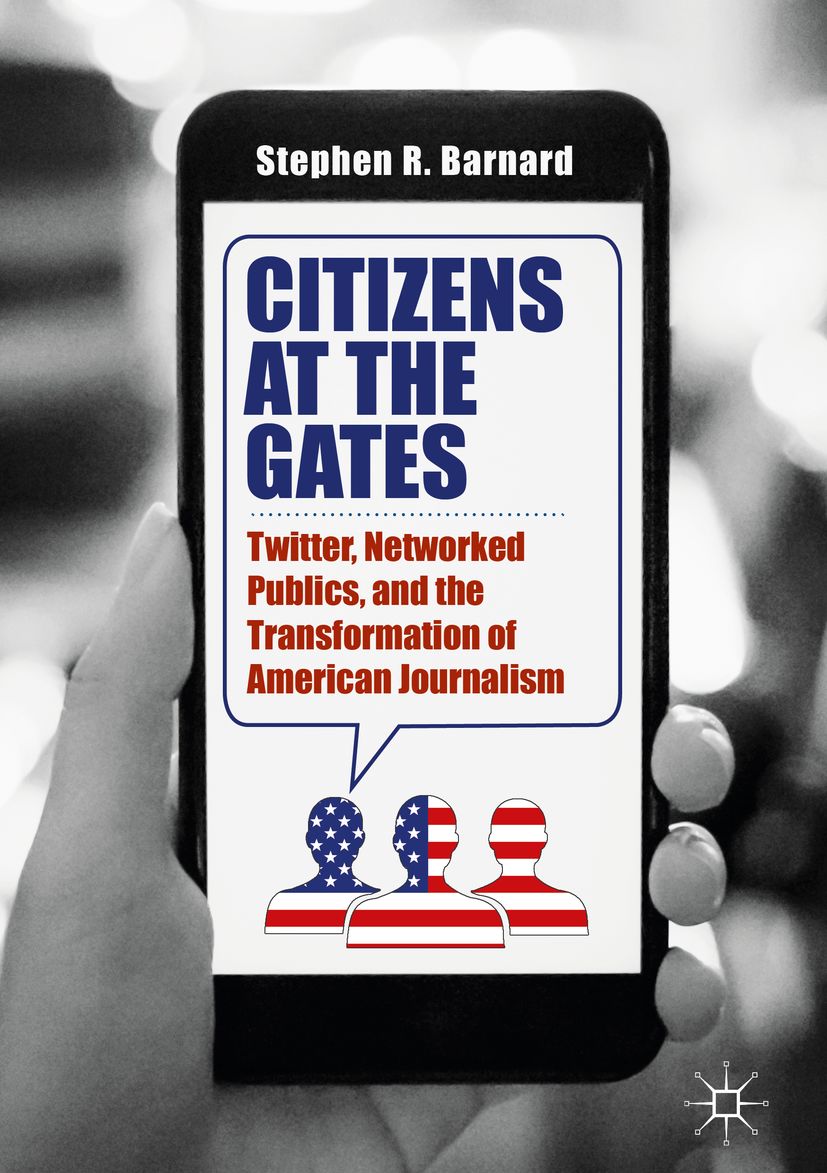Research
|
As a broadly trained sociologist, I am drawn to the study of human agency and structural constraint as they relate to issues of culture, practice, power and inequality. More specifically, my work investigates dynamics of stability and change within unique but interconnected social fields. Each of these interests has led me toward the study of media and communication technologies, given their ubiquity and growing significance in social relations. I pursue these interests through a research agenda confronting the distinct but related areas of media sociology and journalism studies, digital sociology, digital culture and identity, and critical, digital pedagogy. Going forward, my research will continue to expand upon these areas of interest:
Media Sociology and Journalism Studies I have long had a fascination with media and journalism, beginning with my days as an editor of my high school newspaper and continuing to the journalism and sociology of media classes I took as an undergraduate student at the University of Missouri. As I began developing my own research agenda, it occurred to me that if I were going to focus on a ubiquitous institution that played an important role in dynamics of social change, media was it. While my early research investigated representations and inequalities in media coverage by traditional media outlets, including a comparative content analysis of the Iraq war coverage for my B.A., and another comparative analysis of reporting on race issues for my M.A., I soon became fascinated with the growing significance of new media and communication technologies. Driven by questions about the role technology plays in social change, I set out to study how these factors shape the practice and profession of journalism. My forthcoming book, Hacking Hybrid Media: Power and Practice in an Age of Manipulation, will be published by Oxford University Press in the Oxford Studies in Digital Politics series. From the structures of social media platforms and journalism organizations to the practices of political actors, the book brings the study of propaganda and media manipulation in conversation with literatures on media power and practice. By analyzing events like the January 6, 2021, attack on the U.S. Capitol, the White House's first "social media summit," and the media frenzy following CNN reporter Jim Acosta's alleged assault of an intern, Hacking Hybrid Media shows how members of Donald Trump's "digital army" use Facebook groups, Reddit forums, Twitter hashtags, YouTube channels, mass media, and more to shape the flow of disinformation in American media. My first book, Citizens at the Gates: Twitter, Networked Publics, and the Transformation of American Journalism (Palgrave Macmillan, 2018) won the 2020 Book Award from the Communication, Information Technologies, and Media Sociology (CITAMS) section of the American Sociological Association. The book provides the first in-depth analysis of Twitter’s unique role in the transformation of the journalistic field. By drawing insights from digital ethnography, content analysis, social network analysis and link analysis, it examines how professional and citizen journalists use Twitter, and why it matters. Straddling the borders of sociology, journalism, communications and media studies, Citizens at the Gates provides a revealing analysis of how the institution of journalism—at once a public practice and professional field—is undergoing drastic change facilitated by concurrent revolutions in technology, culture, and civic participation. One chapter from this project has been published in New Media & Society, while another was published in Journalism: Theory, Practice and Criticism. I also co-author of All Media Are Social: Sociological Perspectives on Mass Media (Routledge 2020). The book synthesizes decades worth or research on media's complex and often contradictory societal influence. It's principal aim is to makes critical insights from media sociology accessible to a wide audience. Digital Sociology My expertise as a media sociologist focusing on digital media and technology has situated me amongst a number of other path-breaking scholars seeking to add new methods and questions to the sociological repertoire. Around the same time, the field of “digital sociology” emerged to address the opportunities these changes hold for the practice of sociology. Whereas much of the work in this area has focused on applying digital tools in data analysis or public engagement, which I refer to as "digital scholarship," there is also a growing body of research on the social and cultural significance of digital technologies—a subject I refer to broadly as "scholarship of the digital." My work addresses both types of digitality, using digital methods to study social phenomena that are increasingly augmented by digital media and technology. As such, I advocate for greater development of digitally-attuned questions and research tools while also forging paths in that direction. I address many of these issues in my chapter, “Digital Sociology’s Vocational Promise," forthcoming in Digital Sociologies, edited by Jessie Daniels, Karen Gregory, and Tressie McMillan Cottom. Furthermore, I continue to speak and write about the promises and challenges inherent in doing sociology in and of the digital age. Digital Culture and Identity Another way my emphasis on digital media has influenced my scholarship can be found in my work on contemporary culture and identity. Given the growth of mobile devices, the Internet, and social media—somewhat of a perfect storm, which Rainie and Wellman (2012) term the "triple revolution"—the norms and practices of social interaction have shifted significantly. One way these changes are visible is through the popularity of the "selfie," a form of self-portraiture that is frequently shared via social media. While selfies afford greater agency to networked individuals, often to the point of being called "empowering," popular self(ie)-expressions often conform to hegemonic norms, especially relating beauty and gender. It was my interest in these issues that led to my article, “Spectacles of Self(ie) Empowerment? Networked Individualism and the Logic of the (Post)Feminist Selfie,” which was published in Studies in Media and Communication, Volume 11. I continue to pursue work on digital culture and identity in research and teaching. Critical, Digital Pedagogy It is clear by now that the digital revolution has impacted many fields, including the practice and study of teaching and learning. Given my dedication to praxis-oriented pedagogy, I have spent years developing theories and methods for the effective use of technology in the classroom. In August 2015, I was awarded a Hybrid Pedagogy Fellowship to attend the inaugural Digital Pedagogy Lab. In addition contributing as a “star participant” I was invited to publish an article, Building Castles in the Air: Critical Digital Pedagogy and the Pursuit of Praxis," in the journal Hybrid Pedagogy. Previously, my work (with my colleague Jesse Van Gerven) combined critical pedagogy, race, and social justice in a theoretically and methodologically creative way, working toward a practical approach to the study of race and social (in)justice that is able to step outside academia's "ivory tower." This led to our 2009 article "A People's Method(ology): A Dialogical Approach," published in Cultural Studies <=> Critical Methodologies. I continue to pursue work in this vein through talks and papers on the subject of critical, digital pedagogy. *More information on my research and publications can be found on my CV. |




